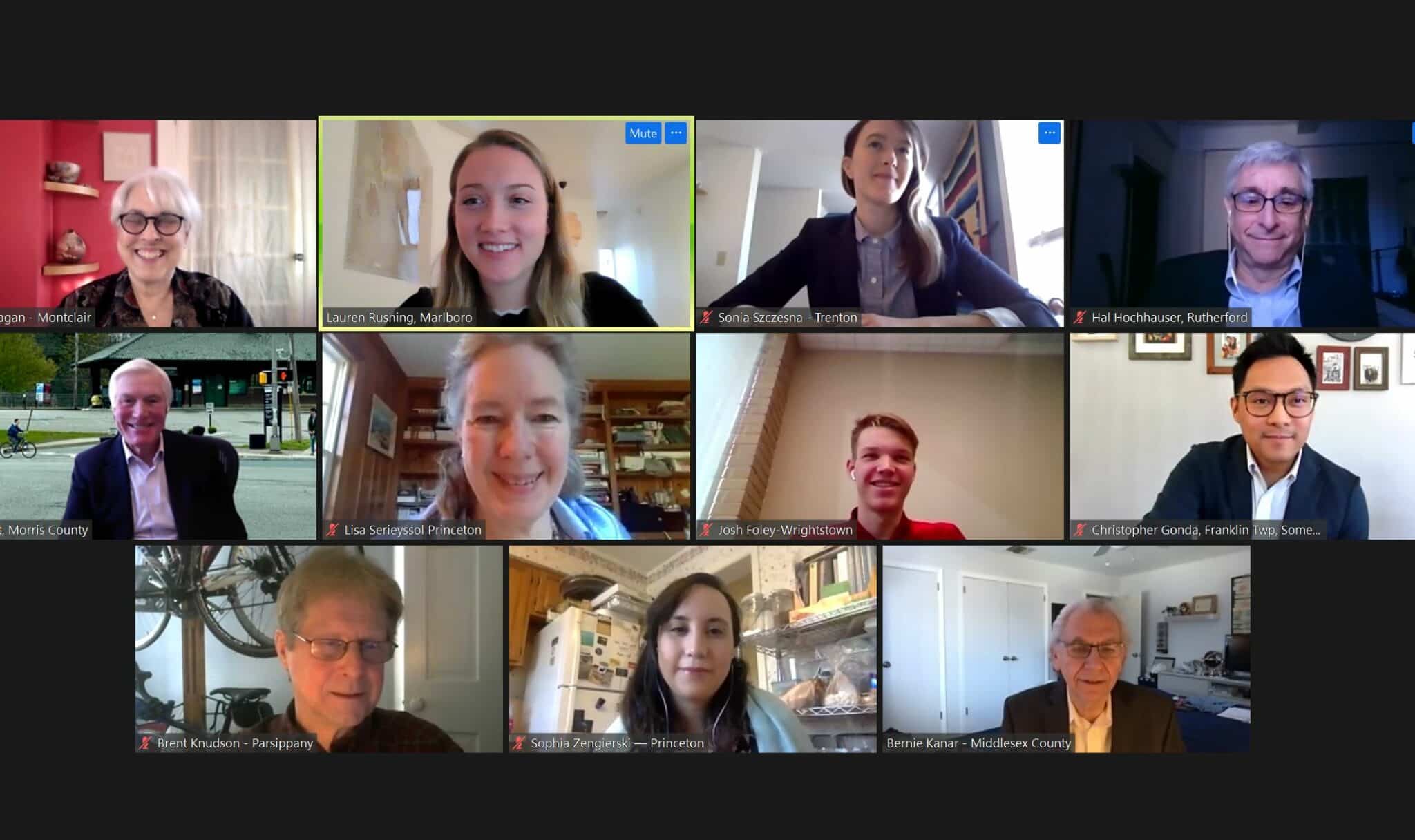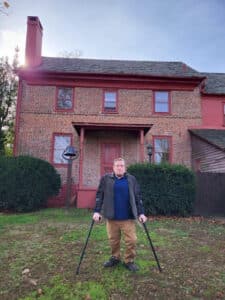On March 3rd, NJBWC served as the New Jersey State Coordinator for virtual Lobby Day at the League of American Bicyclists’ National Bike Summit 2021. New Jersey advocates for bicycling and walking met with staff members of Congress to lobby for federal policy that would improve safety and convenience for bicycling, walking, and other alternative modes of transportation.
We hope that these meetings will be the start of ongoing relationships with our congressional staff, who showed an understanding and interest in cycling and walking as a tool for societal change and improvement.
We asked Congressmembers to cosponsor these policies.
Senate
S. 614 Transportation Alternatives Enhancement Act
The original TA program was predicated on the idea that local governments should have decision-making power over a small amount of federal transportation funding for local transportation priorities, such as bikeways and sidewalks. This bill, introduced by Sens. Cardin and Wicker, makes small changes to increase overall funding, restore flexibility to the state, provide technical assistance, and to assure that local governments have a chance to compete for funds, while increasing local control to communities.
What the bill does:
- Ensures fair increases in and fair distribution of TA funds
- Increases local control
- Improves project applications
- Gives states flexibility
- Ensures local governments can access funds before they are transferred
- Prioritizes high needs areas
S. 425 – Complete Streets Act
In addition to NJ DOT’s statewide policy, there are currently 169 municipalities and 8 counties in New Jersey with local Complete Streets policies. This means that 46% of the New Jersey population lives in cities that want to prioritize safe streets for all. The Complete Streets Act of 2021 aims to ensure our roadways are designed safely and efficiently to serve all users and would help local governments implement their existing policies. This bill sets policy and design standards and creates a grant program that would ensure not only the proper design of new roads, but would allow existing roads to be retrofitted.
What the bill does:
- Sets Complete Streets design standards.
- Sets minimum standards for what a local complete streets policy must include.
- Requires states set aside 5% of federal highway funding to establish a technical assistance and construction grant program.
House
H. R. 463 – Transportation Alternatives Enhancement Act
The House Transportation Alternatives Enhancement Act is similar to that in the Senate. The original TA program was predicated on the idea that local governments should have decision-making power over a small amount of federal transportation funding for local transportation priorities, such as bikeways and sidewalks. HR 463, introduced by Reps. Espaillat and Larsen, makes small changes to restore flexibility to the state, while increasing local control to communities.
H. R. 508 – SAFE Streets Act
The Safe and Friendly for the Environment (SAFE) Street Act addresses Vulnerable Road
User safety by creating a special rule within the Highway Safety Improvement Program to
ensure states address the significant and growing safety problem. This bill requires US DOT to rank states based on Vulnerable Road User (VRU) fatalities and series injuries (FSI) and requires states and MPOs to perform safety assessments and to address high risk locations.















































































